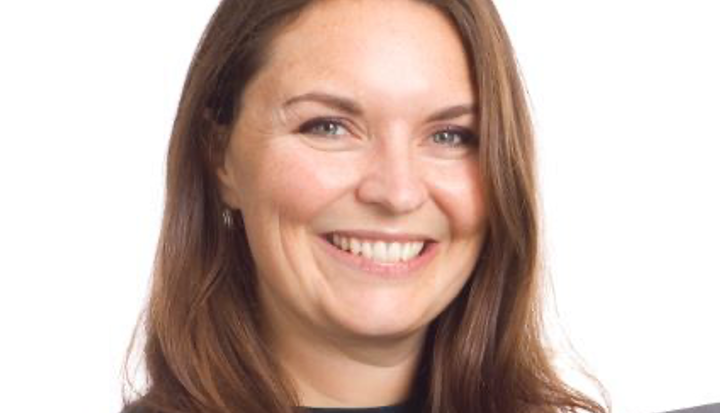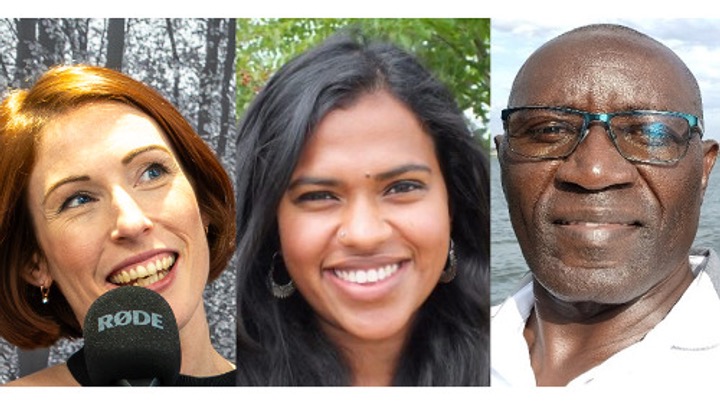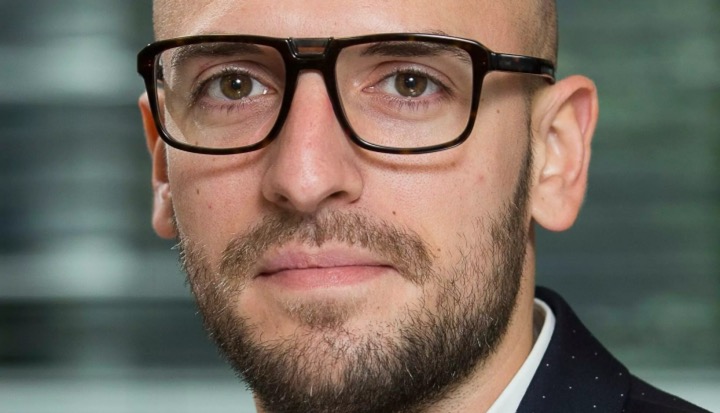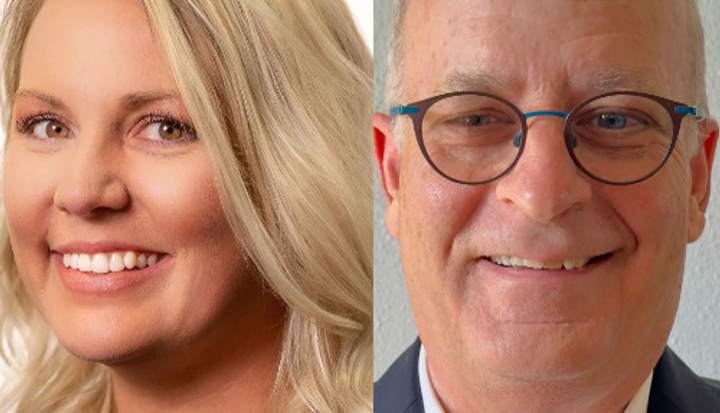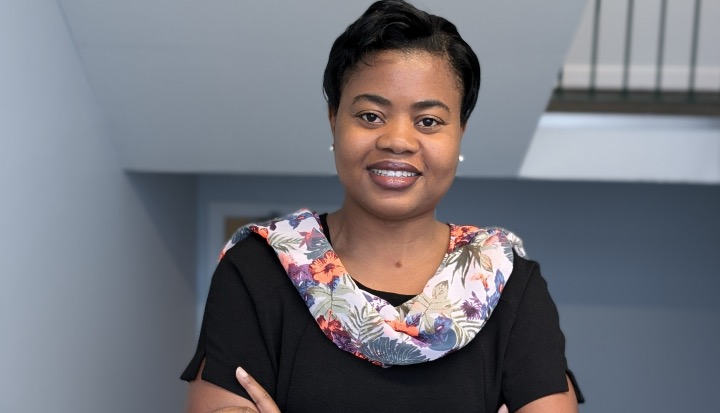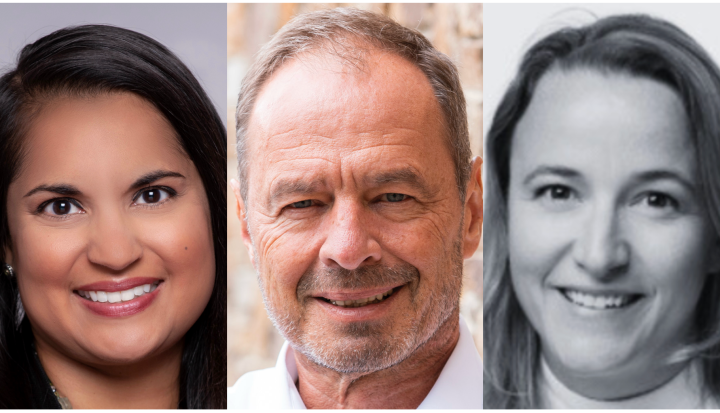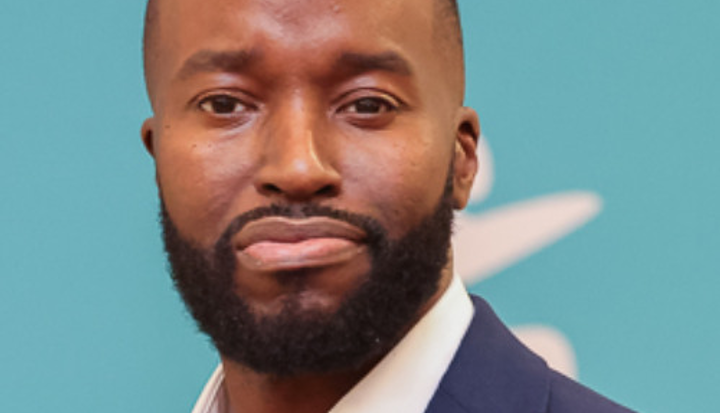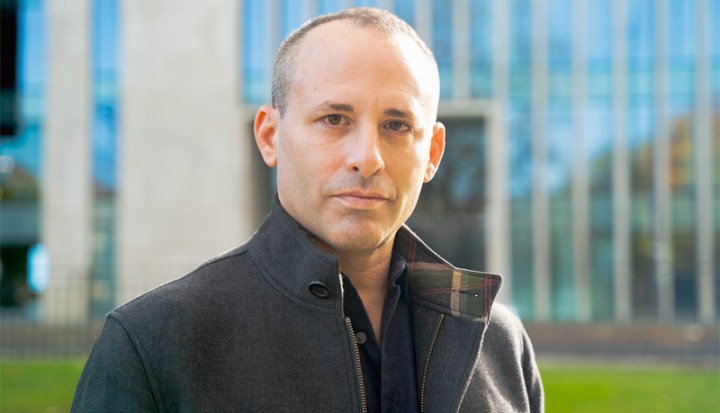BFP: What do you do?
SH: I am lucky to be part of the leadership team at One Acre Fund, where we all work in service of smallholder farmers—the 180,000 farmers in East Africa that we serve now, and the hundreds of thousands of farmers we hope to serve in the future. We provide farmers with a complete service bundle that includes the distribution of seed and fertilizer, financing, training, and market facilitation. This service bundle enables farmers to generate a permanent gain in farm income.
BFP: What is the best part about your job/project?
SH: No two days are the same! I love the diversity of my work. Some days I am in the field learning from our clients, and other days I am sharing what I’ve learned with influential individuals who can help create a more constructive policy environment for smallholder farmers.
I manage our government relations and policy team, but I also help lead “frontier” areas at One Acre Fund—new, emerging areas of work that could completely alter our scale and impact trajectories. Our two current frontier areas are microfinance partnerships and government services (operational partnership with governments).
Right now, I’m enjoying shaping the strategy and building the teams that will execute our microfinance partnerships and government services work. These teams are already working on formative partnerships in Rwanda and Ethiopia that could impact hundreds of thousands of smallholder farmers.
BFP: What has been your greatest challenge?
SH: Our biggest challenge is finding talented people to support our rapid organizational growth. I spend a lot of my time looking for the entrepreneurial, humble, results-oriented individuals who will help One Acre Fund reach one million farmers by 2020.
Another ongoing challenge is how to remain nimble and continually urge ourselves to innovate. We are tackling a huge problem: There are hundreds of millions of smallholder farmers in the world. We’ve developed one operating model that has scaled to serve 180,000 farmers. But if you think about the total global demand, 180,000 is just a drop in the bucket. We need to keep innovating other tools, methods, or solutions that can reach millions of farmers. This will require us to partner with other organizations, like microfinance institutions and governments.
BFP: How have you overcome these challenges? / What has been the secret of your success? / What advice can you give others ?
SH: Finding talented people is an ongoing challenge, but we are getting better and better at it. We invest a lot of time in the candidate evaluation process, and we ask candidates to complete written exercises that address some of the major challenges or strategic questions they’ll need to tackle if they are hired. This allows candidates to evaluate fit and whether the role is right for them, and it allows us to evaluate a candidate’s style of working and approach to problem solving.
Once we find great people, they tend to thrive in the One Acre Fund work environment. Our staff have lots of autonomy, interesting projects to work on, smart colleagues, and a passion for our “Farmers First” mission.
It is not easy to remain nimble and to focus on innovation as you grow, but one of our core values is dreaming big, and it has really permeated our DNA as an organization. I have the opportunity to spend time at all of our country operations and I am continually impressed by the innovations that are being generated in all departments. We have a new department in Kenya called “scale innovations,” and it only works on figuring out ways to improve the execution and efficiency of our Kenya field operations. Our Rwanda operation has partnered with the Rwandan government to distribute fertilizer to 1/3 of Rwanda’s farmers. They pioneered a distribution system to reach farmers through agrodealers. Most of our innovations have emerged because individuals or teams have the ability to take a great idea, test it out, and scale it up if it works. Building this space for experimentation (and failure) has allowed us to continually innovate as we grow.
BFP: If someone wants to do what you do – where do they start?
SH: I worked in book publishing, and then I was a journalist at a foreign policy think tank, reporting on economic and political development in Africa. In the course of my reporting work, I discovered the importance of agriculture to overall poverty reduction, and I became interested in organizations that were using business tools to address agriculture development issues. It was a big risk for me to move to western Kenya and take a job at One Acre Fund. At the time, One Acre Fund was a small start-up, and the growth trajectory of the organization was uncertain.
My path has been a non-linear one, so I am a firm believer that anyone who truly wants to serve others by using business approaches can make a career in this field. To do so, you probably need to have a few things:
- A tolerance for risk. Social enterprise is still a young field, so you need to be willing to work for organizations that are start-ups with uncertain futures. These opportunities are risky, but also present amazing opportunities for professional growth.
- Some kind of technical expertise. Social enterprises need some generalists who are smart and hard working, but they often need individuals with technical expertise, and those individuals are hard to find. If you have expertise in finance, IT, logistics, government relations, communications, or even construction, you will be a desirable candidate to many organizations. As One Acre Fund has matured as an organization, we need these experts more and more.
- The “hustler quotient.” Using business approaches to serve the poor is hard. You need to have what Elias Schulze, the Africa CEO of Kaymu, likes to call “the hustler quotient.” He defines this as an “epic disregard for constraints.” I would call it the ability to get things done in the face of continual, unexpected challenges.
BFP: Finally, What do you hope to get out of being part of the BFP community?
SH: I hope to learn from the practical experiences of other members of the BFP community. At One Acre Fund, we sometimes have our heads down, thinking about how to solve problems that are particular to our operating environment. However, it’s possible that other organizations in the energy or health sectors have tackled similar problems and developed scalable solutions. I think BFP is a great place to connect with practitioners who have innovated new ways to serve the bottom of the pyramid.
And, of course, if any of those practitioners are interested in jobs at One Acre Fund, we have many open positions!
Thank you to Stephanie Hanson for taking the time to do this interview.
We’re always looking out for members to feature. Help us by taking two-minutes to update your profile, or by nominating someone for Business Fights Poverty Member of the Week.
Read previous Member of the Week interviews here.

